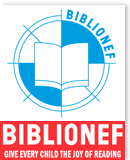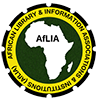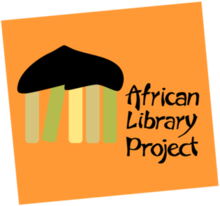
Mercy Ships is an international charity based on Christian values that operates the largest non-governmental hospital ships in the world, providing hope and healing in Africa through surgical care and surgical education, community development projects, community health education, mental health programs, agriculture projects, and palliative care for terminally ill patients. Its headquarters are in Garden Valley, Texas.

The eGranary Digital Library is a product of the WiderNet Project, a non-profit aimed at providing access to information technology and library services in developing countries.

Project HOPE is an international global health and humanitarian aid non-governmental organization founded in the United States in 1958. Project HOPE works in five main areas: disasters and health crises; infectious diseases; noncommunicable diseases; maternal, neonatal and child health; and health policy. The organization has been led by President and CEO Rabih Torbay since 2019.

The MV Africa Mercy is a 152 m, 16,572 GT hospital ship belonging to the humanitarian organization Mercy Ships. Converted from the rail ferry MS Dronning Ingrid in 2007, she is currently the world's second largest non-governmental floating hospital, following the organization's newest and largest ship, the MV Global Mercy.
Blood:Water Mission is an international nonprofit that partners with African community-driven organizations to end health disparities caused by the HIV/AIDS and water crises. It is based in Nashville, Tennessee, US, and is led by Jake Smith.
Bibliothèques Sans Frontières (BSF), known as Libraries Without Borders (LWB) in English, is a charitable organisation based in France that provides access to information and education for those who need it most, whether refugees in humanitarian crises or under-resourced communities in the developed world. Founded in 2007, the organization distributes books, develops innovative technologies, creates customized programs, and builds digital learning platforms in more than 50 countries, including Colombia, Cameroon, Bangladesh, France, and the United States. The U.S. branch, opened in 2008, is based in Washington, D.C., and listed as a non profit 501(c) organization under U.S. law. The organization received the Library of Congress' International Literacy Award in 2016.

Humanity First is an international charity that provides disaster relief and long term development assistance to vulnerable communities in 52 countries across 6 continents. The organisation is run by volunteers with diverse skillsets across the world and has access to thousands of extra volunteers worldwide. Volunteer staff in all areas often pay their own expenses to support the international projects.

Energy For Opportunity (EFO) is a non-profit organization dedicated to the promotion of solar energy across the West African Region. They provide solar energy to off-grid families, schools, organizations, and communities in Sierra Leone, Benin, and Mali.

Afya Foundation is a 501(c)(3) not-for-profit organization based in Yonkers, New York. It was founded in 2007 by Danielle Butin, MPH, OTR after a trip to Tanzania, where she encountered the dire circumstances and severely limited medical resources of their medical clinics. Afya, which means "good health" in Swahili seeks to spread "Good Health Through Giving," and does so by providing medical supplies, consumables, sustainable equipment, and community outreach supplies to international health clinics.
Child Aid is a 501(c)(3) non-profit based in Portland, Oregon, working to promote literacy in Latin America. According to Child Aid's mission statement, the organization works to "create opportunity for Latin America's rural and indigenous poor through childhood literacy and education programs."
Worldreader is a 501(c)(3) global nonprofit organization working with partners to get children reading at least 25 books a year with understanding.
A shipping container clinic is a type of shipping container architecture using intermodal containers as the structural element of a medical clinic that can be easily deployed to remote regions of the world. Shipping containers are ideal because of their inherent strength, wide availability and relatively low cost. In addition, and most relevant, shipping containers can be deployed anywhere in the world with the clinic already assembled within the container. This means pop-up clinics can be operational within days after deployment.
Hospitals of Hope is a 501(c)(3) Christian medical missions organization that aims to improve the healthcare of the under-served, both locally and internationally.
World Computer Exchange (WCE) is a United States and Canada based charity organization whose mission is "to reduce the digital divide for youth in developing countries, to use our global network of partnerships to enhance communities in these countries, and to promote the reuse of electronic equipment and its ultimate disposal in an environmentally responsible manner." According to UNESCO, it is North America's largest non-profit supplier of tested used computers to schools and community organizations in developing countries.

Makerere University Library, established in 1949, is the oldest academic library in Uganda. In addition to its primary role as an academic library, it also serves as the national reference library and the legal depository of all works published in Uganda. It has been a depository for the United Nations since 1956.
Librarians Without Borders is an international nonprofit organization with headquarters located in London, Ontario, Canada. This is not to be confused with Libraries Without Borders, which has its headquarters in France, Belgium, Canada and Switzerland, or Bibliothécaires Sans Frontières, a now defunct French nonprofit. The organization is overseen by student committees at five Canadian Universities and a volunteer Executive Team and Board of Directors. Librarians Without Borders seeks to provide access to information in communities worldwide by creating partnerships with local people and local librarians. Librarians Without Borders engage in a number of outreach programs created to inspire a love of learning, community engagement and citizen scientists. Members are located in over 75 countries with the majority in Canada and the United States.
Street Library Ghana (SLG) is a volunteer-driven, social enterprise based in Ghana that aims to improve the life chances of children and youth in vulnerable communities by addressing literacy and education issues.

Biblionef is a book donation non-profit organisation based in several countries: Netherlands, South Africa, France, Dutch Caribbean, Flanders, Suriname and Ghana. Biblionef donates new storybooks to under-privileged children and adolescents. The organisation donates books to institutions like schools, day care centres, crèches and other organisations with an educational focus in informal settlements and rural areas.

Organizations from around the world responded to the West African Ebola virus epidemic. In July 2014, the World Health Organization (WHO) convened an emergency meeting with health ministers from eleven countries and announced collaboration on a strategy to co-ordinate technical support to combat the epidemic. In August, they declared the outbreak an international public health emergency and published a roadmap to guide and coordinate the international response to the outbreak, aiming to stop ongoing Ebola transmission worldwide within 6–9 months. In September, the United Nations Security Council declared the Ebola virus outbreak in the West Africa subregion a "threat to international peace and security" and unanimously adopted a resolution urging UN member states to provide more resources to fight the outbreak; the WHO stated that the cost for combating the epidemic will be a minimum of $1 billion.

The African Library and Information Associations and Institutions (AfLIA), commonly referred to as AfLIA, is an international not-for-profit organization headquartered in Accra, Ghana. The Association is registered under the laws of Ghana as an NGO. It is managed under the general guidelines of its Constitution and by-laws.The Institution is currently being led by Dr. Helena Asamoah-Hassan as the Executive Director.











